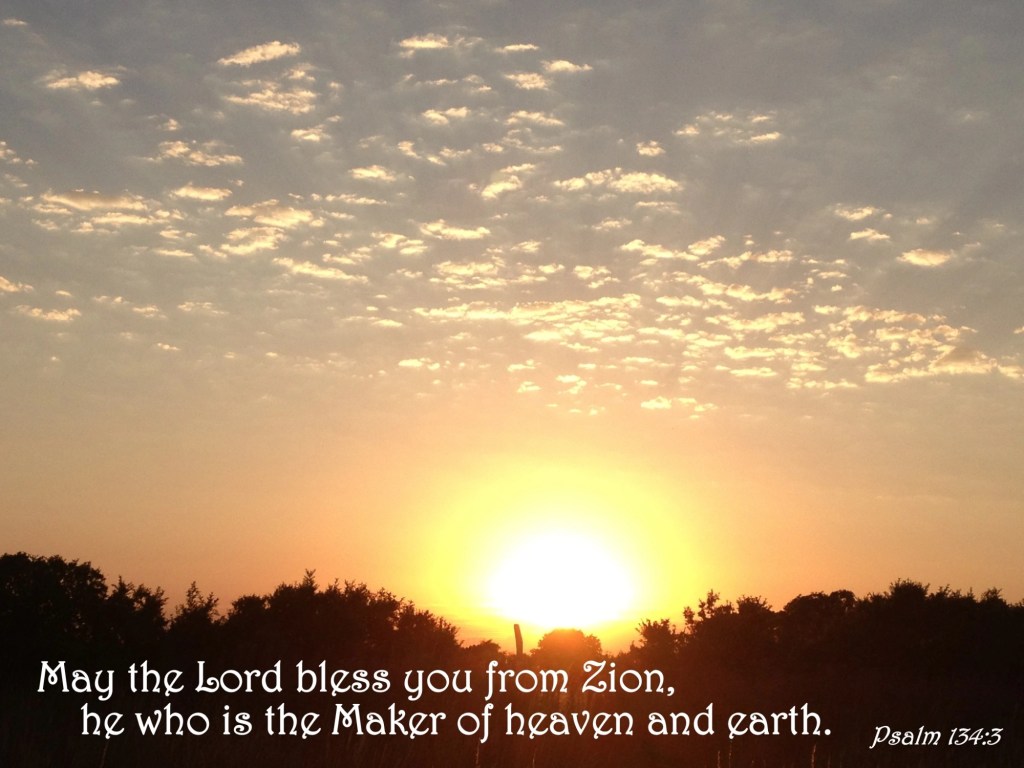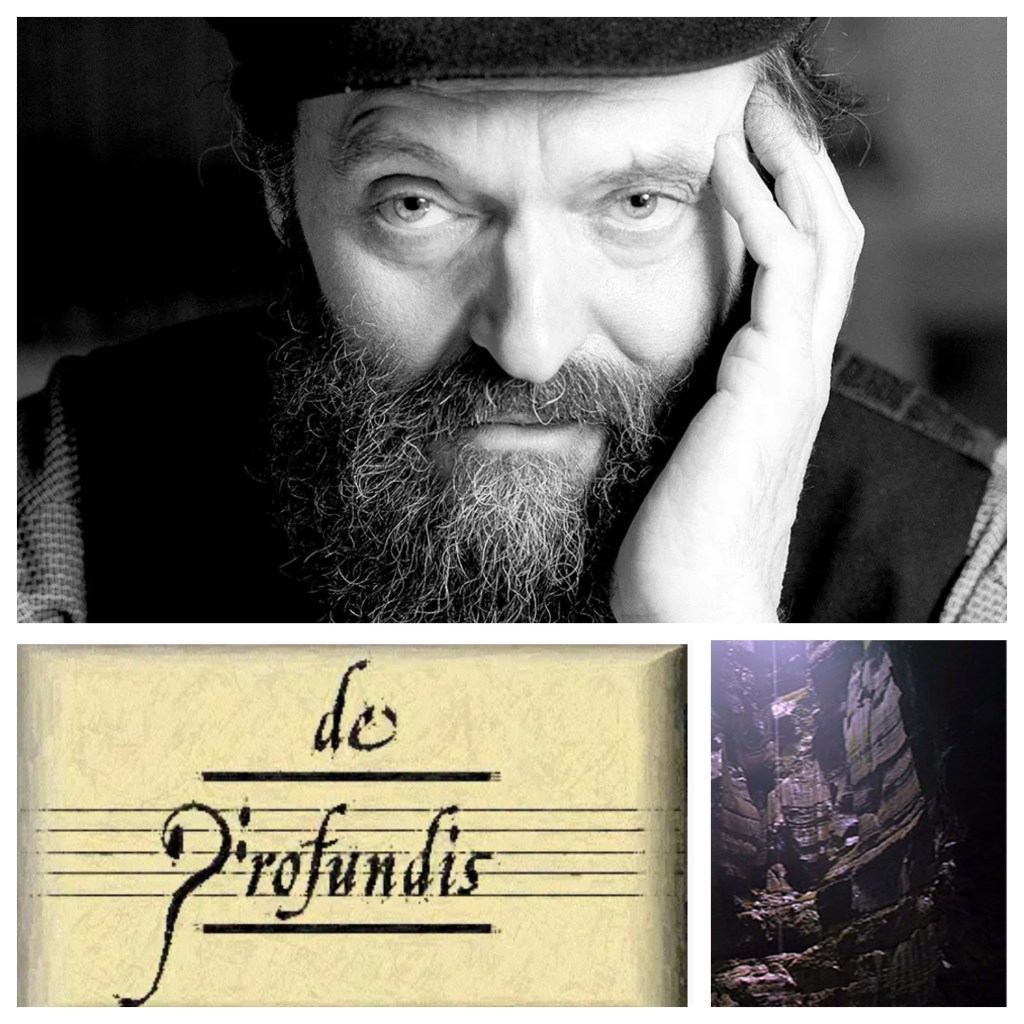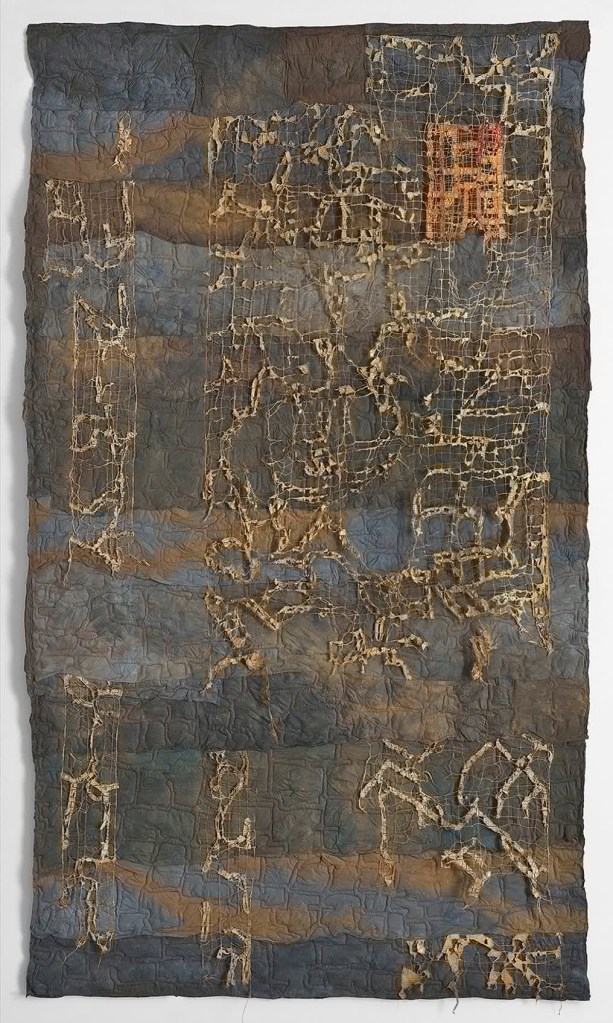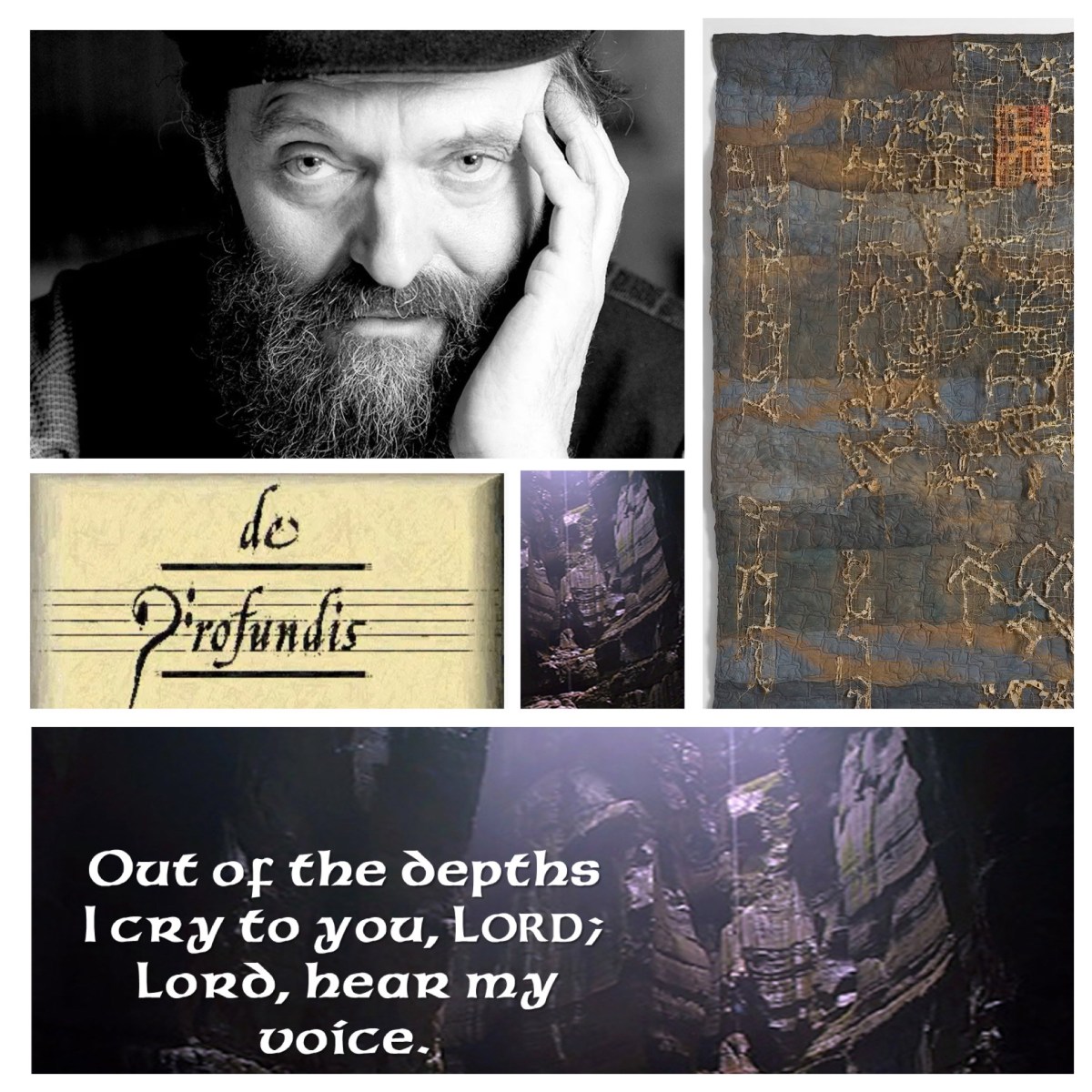The psalm offered by the lectionary for this coming Sunday, Psalm 130, is one of a series of 15 psalms (Psalms 120—134), each of which is each identified as shir hammalowt, “a song of ascents”. They are so called because it is believed they were sung by faithful Israelites as they made their pilgrimage, ascending to Jerusalem, on one of the three annual festivals—the Feast of Unleavened Bread (Passover), the Feast of Weeks (Pentecost), and the Feast of Tabernacles (as listed in Deut 16:16).
The series of Songs of Ascent begins with “in my distress I cry to the Lord” (Ps 120:1), moving on to “I lift up my eyes to the hills” (Ps 121:1). I like to imagine that this was being sung as the outline of the city built on and around Mount Zion appeared in the far distance. We can imagine the pilgrims drawing closer to the walls of the city as the psalmist sings, “I was glad when they said to me, ‘Let us go to the house of the Lord!’” (Ps 122:1), then sings of lifting up their eyes to “you who are enthroned in the heavens” (Ps 123:1).
Next, the pilgrims offer expressions of trust in God (Ps 124:8; 125:1–2), celebrating “when the Lord restored the fortunes of Zion” (Ps 126:1), and yearn that the Lord God might “restore our fortunes … like the watercourses in the Negeb” (Ps 126:4).
By this time, I imagine the pilgrims viewing both the city from outside its walls and the Temple on its highest point, singing “unless the Lord builds the house, those who build it labor in vain; unless the Lord guards the city, the guard keeps watch in vain” (Ps 127:1). This psalm then celebrates the gift of sons (Ps 127:4–5) and the following psalm celebrates “your wife [who] will be like a fruitful vine within your house; your children will be like olive shoots around your table”, concluding “thus shall the man be blessed who fears the Lord” (Ps 128:3–4).
I also like to imagine that, as the pilgrims were entering the city, the pilgrims sang to celebrate, “the Lord is righteous; he has cut the cords of the wicked” (Ps 129:4), followed by a heartfelt cry to God from “out of the depths” (Ps 130:1) and an affirmation that “with the Lord there is steadfast love, and with him is great power to redeem” (Ps 130:7).
Next, the psalmist simply observes, “I have calmed and quieted my soul” (Ps 131:2); and then, as the Temple is immediately before them, the pilgrims sing, “Let us go to his dwelling place, let us worship at his footstool” (Ps 132:7).
Then follows the two shortest of all the Songs of Ascent, to bring the series to a close. One song celebrates the unity of the people, with oil running down the head “like the dew of Hermon, which falls on the mountains of Zion” (Ps 133:3), and then in the final song the pilgrims are “stand[ing] by night in the house of the Lord”, concluding with the prayer, “may the Lord, maker of heaven and earth, bless you from Zion” (Ps 134:3). It is a beautiful blessing to conclude the whole sequence.

In Psalm 130, the psalmist utters a cry of deep despair: “out of the depths I cry to you, O Lord” (Ps 130:1), picking up the opening prayer of the first song of ascent, “in my distress I cry to the Lord, that he may answer me” (Ps 120:1). The depths of the earth were the place where sinful people went (Ps 63:9; Isa 14:15), following the lead of the Egyptians who pursued the Israelites and “went down into the depths like a stone” (Exod 5:4–5; Neh 9:11; Isa 63:11–13). There, in the depths, God’s anger burned (Deut 32:22). It would indeed be a place causing distress, as the psalmist’s prayer recognises.
However, those banished to the depths were able to be brought back from the depths by God’s decree (Ps 68:22; 71:20; 86:13), so in this psalm the cry of the psalmist from the depths is followed by the plea, “Lord, hear my voice! Let your ears be attentive to the voice of my supplications!” (Ps 130:2).
This plea, “hear my voice”, is uttered in three other psalms (Ps 28:2; 64:1; 119:49), and twice the psalmist affirms that God does indeed listen: “O Lord, in the morning you hear my voice” (Ps 5:3) and “evening and morning and at noon I utter my complaint and moan, and he will hear my voice” (Ps 55:17).
Supplication is regularly made by the psalmist (Ps 28:2; 30:8; 55:1; 86:6; 119:170; 142:1) and the affirmation is clear: “the Lord has heard my supplication; the Lord accepts my prayer” (Ps 6:9). The psalmist’s confidence in God’s trustworthy response to prayer is undergirded by three qualities attributed to God in this short psalm: forgiveness (v.4), steadfast love (v.7a), and power to redeem (vv.7b—8).

The psalmist prays for forgiveness from God (Ps 25:18: 79:9) and affirms that “Praise is due to you, O God, in Zion; and to you shall vows be performed, O you who answer prayer!”, for “when deeds of iniquity overwhelm us, you forgive our transgressions” (Ps 65:1–3). In another psalm, we hear the song, “happy are those whose transgression is forgiven, whose sin is covered” (Ps 32:1), which thus undergirds the affirmation in this psalm, “there is forgiveness with you, so that you may be revered” (Ps 130:4).
With this trusting attitude, the psalmist sings, “I wait for the Lord, my soul waits” (Ps 130:5–6), reflecting a common attitude across many psalms, waiting for the Lord: “you are the God of my salvation; for you I wait all day long” (Ps 25:5); “it is for you, O Lord, that I wait; it is you, O Lord my God, who will answer” (Ps 38:15); “for God alone my soul waits in silence, for my hope is from him” (Ps 62:5). So the psalmist encourages others, “be strong, and let your heart take courage, all you who wait for the Lord” (Ps 31:24) and affirms that “those who wait for the Lord shall inherit the land” (Ps 37:9).
As the psalmist waits, it is trust in the steadfast love of God which is envisaged and yearned for (Ps 130:7). Elsewhere, the psalmist addresses God as “a God merciful and gracious, slow to anger and abounding in steadfast love and faithfulness” (Ps 86:15) and sings of how “steadfast love and faithfulness will meet; righteousness and peace will kiss each other” (Ps 85:10). The refrain which praises God’s steadfast love and faithfulness is found in many places in the Hebrew Scriptures (Exod 34:6; 2 Chron 30:8–9; Neh 9:17, 32; Jonah 4:2; Joel 2:13; Ps 86:15; 103:8, 11; 111:4; 145:8–9).
Accordingly, the prophet Micah affirms that God’s steadfast love will rescue those who “lick dust like a snake, like the crawling things of the earth”, and will indeed “cast all our sins into the depths of the sea” (Mic 7:17, 19). This may be a vivid description of the state in which the psalmist finds themself, as they cry “out of the depths” (v.1); there, the steadfast love of the Lord will indeed meet them (v.7). So the psalmist confidently affirms, “I wait for the Lord, my soul waits, and in his word I hope” (Ps 130:5).
In that waiting, the psalmist believes, the redemption of the Lord will surely be experienced: “Israel, hope in the Lord! For with the Lord there is steadfast love, and with him is great power to redeem. It is he who will redeem Israel from all its iniquities” (Ps 103:7–8). Through the establishment of the covenant and the giving of Torah, God “sent redemption to his people;” (Ps 111:9), and so prayers seeking redemption are regularly offered: “rise up, come to our help; redeem us for the sake of your steadfast love” (Ps 44:26); “redeem me from human oppression, that I may keep your precepts” (Ps 119:134); “as for me, I walk in my integrity; redeem me, and be gracious to me” (Ps 26:11).
The psalmist is confident, also, about God’s redemptive activity: “I call upon God, and the Lord will save me … he will redeem me unharmed from the battle that I wage, for many are arrayed against me” (Ps 55:16, 18). The foundational story of the Exodus, the primal myth of the people of Israel, assures the psalmist of the promise of abode that “I will free you from the burdens of the Egyptians and deliver you from slavery to them; I will redeem you with an outstretched arm and with mighty acts of judgment” (Exod 6:6).
That same divine redemption continued to bring the people into the land promised to them; as David asked of God, “is there another nation on earth whose God went to redeem it as a people, and to make a name for himself, doing great and awesome things for them, by driving out before his people nations and their gods?” (2 Sam 7:23; 1 Chron 17:21). So as the psalmist prays out of the depths, confidently waiting for God to act, they know that “it is [the Lord] who will redeem Israel from all its iniquities” (Ps 130:8).
This psalm resonates with me, from its opening plea, “out of the depths I cry”, to its closing affirmation that, through “the steadfast love” of the Lord, “he will redeem”. In my own moments of deep distress, I have experienced comfort and assurance that I am not unvalued. The love and care of people, grounded in their own faith and expressed in specifically acts of support for and encouragement towards me, have brought the transforming, redeeming presence of the loving God into my life at those moments of distress. I am grateful for this; my own faith has been deepened and strengthened in this way.

My favourite musical setting of the psalm is that by contemporary Estonian composer Arvo Pärt, a setting for a four-part male choir, with organ and percussion. In this short seven- minute piece, Pärt employs his distinctive style of a slowly-moving ostinato in the deep notes of the organ as a foundation, over which the choir moves slowly, building in volume to a climactic moment in unison, just before the music dies away at the end, returning to silence, the ending marked by a single note from a tubular bell.
Music critic John Irvine, in reviewing this piece, wrote: “De Profundis (1980) is an impassioned and yet simple vocal setting … where the voices climb out of the very depths of despair, with a funereal drum beat. Immediately we are drawn into an atmosphere of impassioned worship and reverence.” (https://www.crossrhythms.co.uk/products/Paul_Hilliars_Theatre_Of_Voices/Arvo_Part_De_Profundis/17054/)

This is the artwork that Elizabeth purchased for me on my 70th birthday. It is a piece which we saw at the “Urban Narratives” exhibition last year in Newcastle, held by Timeless Textiles. It is called De Profundis, Latin for “Out of the Depths”, which is how Psalm 130 begins. This psalm contains the affirmation of hope, “my soul waits for the Lord, more than those who watch for the morning”.
The artwork was made by ESZTER BORNEMISZA, an artist based in Budapest, Hungary. She works with waste newspaper, vintage cloth, and other soft materials that she finds “discarded”. Her basic process of creation is machine stitching and paper casting with additional elements of printing, dyeing and painting.
She writes, “From the beginning I have worked with various used textiles, which I have inherited and received from friends. I feel more conscious of environmental issues when I recycle material trying to draw attention to the environmental impact of waste; while tons of garments end up in the dump, we still keep the same level of consumption. I also like to experiment with used materials that I up-cycle to give them new connotations: spoilt X-ray films, computer keyboard integrated circuit films and buttons, discarded electric and chicken-wires and plastic covering sheets from constructions wastes.
“Recently I have mainly used newsprints that play a central role in my work as they provide further visual experiences by their ephemeral character. They are fragile; the content is obsolete sometimes already at the hour of appearance while still bearing fragments of important details from the recent past. They deliver deluges of information from which we must sift out the true from the fake. I use them in my recent translucent works capturing the play of opaque and open elements that play an important role: the shadow behind the work adds another layer of complexity.”
This explains something of why I really love this striking piece of art—combining wonderful artistic creativity with social commentary and environmental responsibility!
See her portfolio of works at https://bornemisza.com

